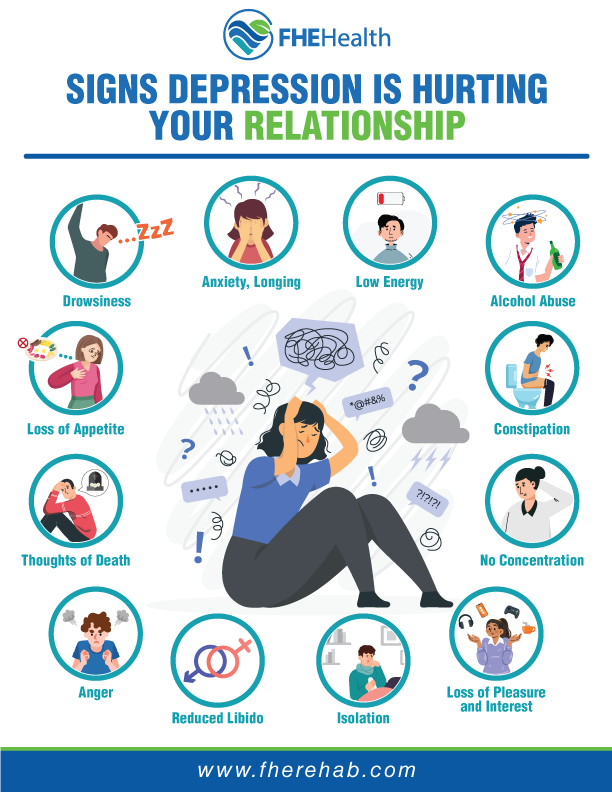
It can be hard to tell how your issues affect others around you. If you’re suffering from depression, you can often feel isolated and alone. But you likely have people in your life who love and care for you. And despite what you may think, those people have noticed your depression. So, if you’re wondering how depression affects relationships, keep reading to learn more.
4 Signs Your Depression is Affecting Friendships and Relationships
Here are four major signs your untreated (or unmanaged) depression is affecting your romantic, family or friend relationships.
1. Your Sex Life Has Dried Up
Whether you’re going through depression in marriage or dating, this mental health condition can take a toll on a romantic partnership. One of the most common adverse ways depression affects a relationship is a lacking sex life.
This happens for many reasons. First, most of us don’t want sex when we feel bad. And a depressed person is often feeling really bad most of the time.
And second, depression can result in a lowered libido. Without a desire for sex, you might not be very likely to initiate or respond to your partner’s cues for some time in the bedroom.
Of course, the irony is that sex boosts your mood and confidence and helps make you feel close to your partner.
A healthy, strong relationship requires a healthy sex life. If you know your depression has reduced or killed your sex drive, ask yourself how this has impacted your partner. It might have made them question whether you’re still attracted to or still love them.
You shouldn’t have to force yourself to do anything you don’t want to, but it’s imperative to check in with your partner. Address that you know the frequency of sex has decreased and that it’s not because of them or anything they did. Explain to your partner how you’re feeling and what this has done to your libido. A good partner will understand how depression affects this relationship and work with you on a solution to get you back to a healthy place where you also feel up for intimacy again.







